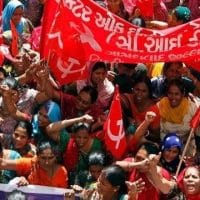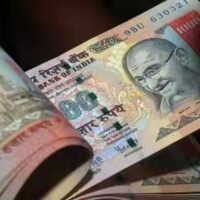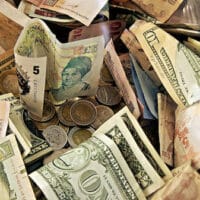-
The globalisation of McCarthyism
The central government’s hounding of Newsclick reminds one of the children’s story about a tiger and a goat drinking water from the same stream.
-
Destroying forests for profits: India
THE Modi government, ever solicitous of corporate interests, has launched a plan whereby real estate developers and other corporates will be allowed to destroy large swathes of India’s forest cover for starting projects that rake in profits. It is amending the Forest Conservation Act to remove those forest patches that are not deemed as such by the government from protection under the Act.
-
The silences of the Delhi declaration
THE G-20 meeting in Delhi was occurring in the midst of an acute economic crisis of the world economy.
-
Believing one’s own false theories
LIBERAL bourgeois writers tend to explain the problems that arise under capitalism not by the immanent tendencies of the system but by the capriciousness of particular governments.
-
Behind BRICS expansion
AT the Johannesburg summit of the BRICS countries, it was decided to expand the group beyond its original five, namely, Brazil, Russia, India, China and South Africa, to include six more countries.
-
The destruction of universities
Fascistic outfits which are themselves devoid of any serious thought, also lack respect for serious thought. It is little wonder then that the BJP government is hell-bent on systematically destroying the few spaces that exist in the country for serious thought. Its assault on universities will do incalculable damage to the country.
-
The stalled decolonization
Of late however there has been a popular anti-imperialist upsurge in several countries of Francophone Africa. In Guinea, Mali, Chad and Burkina Faso, new anti-imperialist governments have come to power in the last couple of years that want French troops out of their countries; and in Mali they have even succeeded in getting French troops out.
-
The problem with “Universal Basic Income”
MANY economists have been advocating a universal basic income for India, an idea that was mooted even in the official Economic Survey for 2016-17.
-
The poverty of UN poverty estimates
ON April 3 this year, the minister of state for planning, Rao Inderjeet Singh, said in the Rajya Sabha that the government had no data after 2011-12 for estimating poverty, and therefore had no idea how many people had been lifted out of poverty since then.
-
When can there be a fall in the rate of profit?
SEVERAL major economists have put forward theories predicting a falling tendency of the rate of profit under capitalism; Marx had seen in this fact an awareness on their part of the essential transitoriness of the capitalist system. But while some of these theories have logical validity, others do not. Among the latter is Adam Smith’s theory.
-
Third World external debt in the light of simple economics
INDIA and other third world countries can morally justify their being a part of G-20 alongside the imperialist powers, only if they raise common and pressing problems of the third world as a whole at G-20 meetings.
-
Is what we have “crony capitalism”?
Under monopoly capitalism of course this relationship between monopoly capitalists and the state becomes far closer. Rudolf Hilferding in his opus Das Finanzkapital had talked of a “personal union” between banks and industrial capital and the formation on this basis of a “financial oligarchy”, and had suggested a similar “personal union” between the “financial oligarchy” and the State.
-
Pitfalls of export-led growth
AFTER Sri Lanka and Pakistan, Bangladesh has become the third country in our neighbourhood to become afflicted by a serious economic crisis.
-
Is “de-globalisation” occurring?
The Greek philosopher Heraclitus had said “You cannot step into the same river twice.”
-
Exchange rate depreciation and real wages
Most people, including even trained economists, fail to appreciate the fact that an exchange rate depreciation, if it is to work in reducing the trade deficit in a capitalist economy, must necessarily hurt the working class by lowering the real wage rate
-
Public opinion and imperialism
A New York Times News Service report reproduced in The Telegraph of Kolkata (May 7), discusses the findings of a global public opinion survey carried out by the Bennett Institute of Public Policy of Cambridge University. These show that the Ukraine conflict had shifted public sentiment “in developed democracies in East Asia and Europe as well as the United States of America, uniting their citizens against both Russia and China and shifting mass opinion in a more pro-American direction”.
-
India: The grim unemployment scenario
THE data on unemployment brough out by the Centre for Monitoring the Indian Economy (CMIE) present a grim picture. Not only has the unemployment rate increased sharply for some years now, starting from even before the pandemic, but the figure which had shot up during the pandemic has not come down much despite the recovery that has occurred in the level of GDP from its trough.
-
Threats to the hegemony of the dollar
JANET Yellen, the U.S. treasury secretary, has finally acknowledged what has been obvious to most people for quite some time, namely that the imposition of sanctions against countries that the U.S. is hostile to, runs the risk of jeopardizing the hegemony of the dollar as the world’s reserve currency.
-
The current state of India’s economy
GOVERNMENT officials never tire of repeating that India is currently the fastest growing major economy in the world.
-
OPEC+ and capitalism’s fight against inflation
Except in war-time, capitalism invariably seeks to control inflation by creating a recession; and this is so even when the inflation has been caused by an autonomous increase in capitalists’ profit-margins which are downward inflexible and hence would not be reduced by a recession.

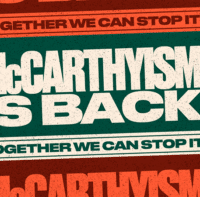

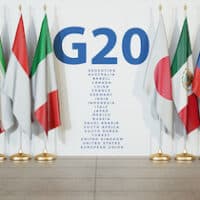
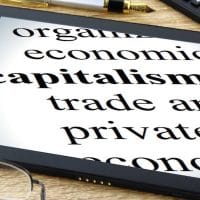

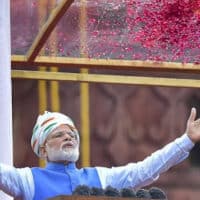


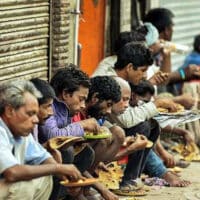


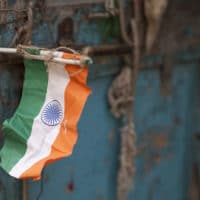

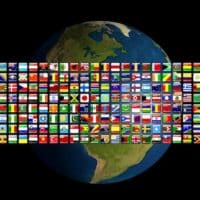
![US dollars [Yousuf Khan - Anadolu Agency]](https://mronline.org/wp-content/uploads/2023/05/AA-20220520-27926764-27926757-DOLLAR_HITS_ALL_TIME_HIGH_AGAINST_PAKISTANI_RUPEE-200x200.jpg)
![President Biden at a virtual summit with China’s President Xi Jinping. [Source: axios.com]](https://mronline.org/wp-content/uploads/2022/02/biden-and-xi-copy-200x200.jpg)
